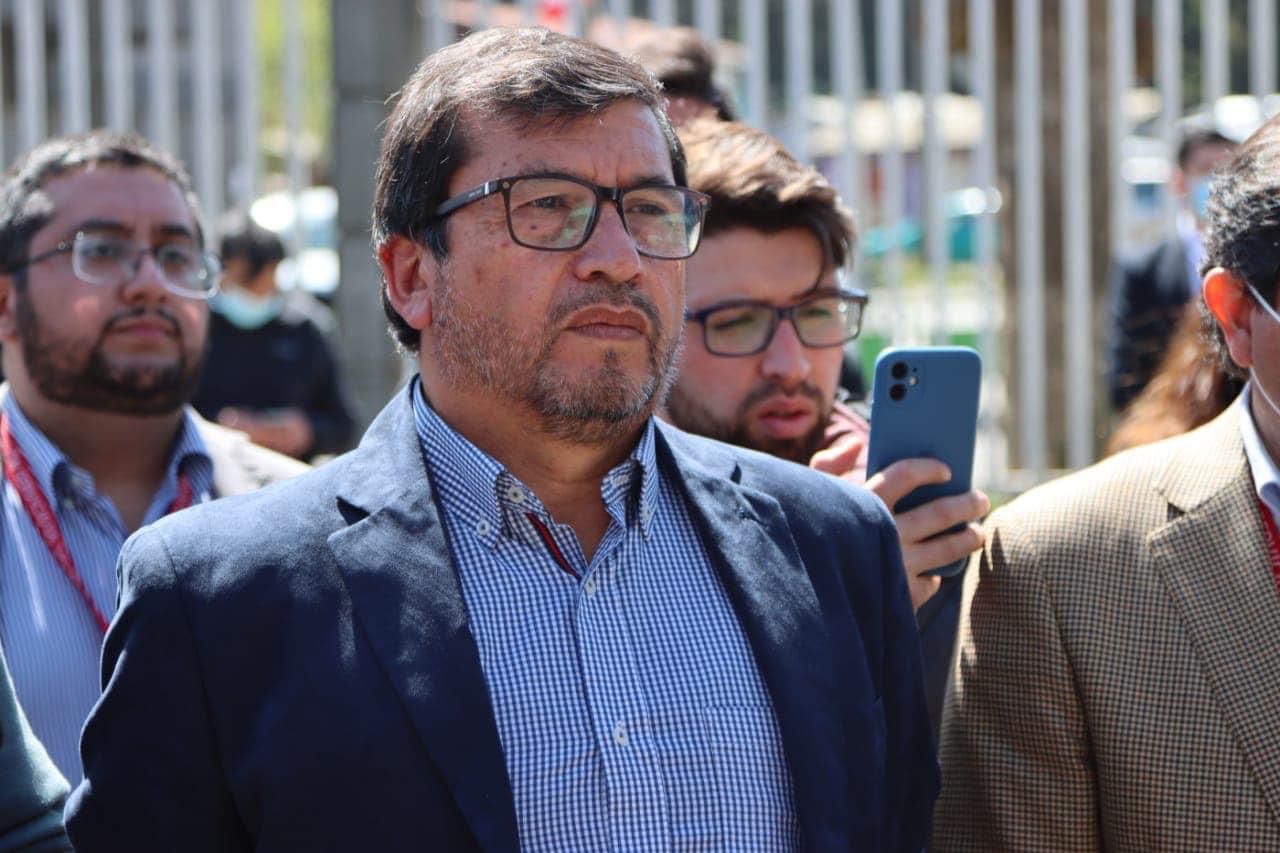Humberto Toro: Presidential Delegate of Arauco Province, Biobío Region
“Timber theft distorts the development of Arauco Province and the legitimacy of the Mapuche cause”
For the past couple of years, organized groups have been entering plantation forests in Arauco Province to occupy lands, using heavy machinery to exploit and load timber. When Carabineros inspect the loaded trucks, they carry fake shipping documents thanks to gangs dedicated to laundering these thefts. Arrests and confiscations are met with resistance from groups seeking to recover the timber and prevent the detention of drivers. There have even been protests and blockades on Route 160 against these inspections—unthinkable in any rule-of-law state.
Given the complexity of the crime, the government has classified those behind it as criminal organizations. Finally, on September 27 of this year, Law No. 21,488 came into effect, amending the Penal Code and the Criminal Procedure Code to define timber theft and related crimes with harsher penalties. Among other measures, it allows the confiscation of motor vehicles, tools, and instruments used in the crime and applies special investigative techniques to timber theft.
Leading the crackdown on timber theft in Arauco Province, Biobío Region, is the current presidential delegate for the area, Humberto Toro, who served as governor for four years during Michelle Bachelet’s second term. Deeply familiar with the province’s issues and respected by local stakeholders, communities, and citizens, he explains the efforts against this crime and the outlook for restoring peace and safety to those living in fear and violence.
Do you see progress in combating timber theft?
There’s growing awareness that this crime distorts Arauco Province’s development and the legitimacy of the Mapuche cause. Economically, it has destabilized the province, whose productive focus rests on four pillars: public (tourism, agri-food, and value-added fisheries) and private (forestry). Tourism and agri-food sectors are struggling, while fisheries remain more resilient. The three public pillars have crumbled, and forestry faces major challenges in sustaining production.
Once it became clear that fighting this crime was strategic, awareness grew, and we’ve made progress.
Progress came as the state, through the government and its institutions, adopted a bolder, more confrontational policy. Framing it as organized crime enabled a larger, more coordinated political and police strategy. The Public Prosecutor’s Office has been strengthened, public agencies are better aligned, and police now have the tools needed for on-the-ground enforcement.
There’s recognition of timber theft’s scale as organized crime.
What about the Public Prosecutor’s Office and investigations?
Timber theft fits the organized crime label—it’s not just a heist or simple theft. There’s a structured, sophisticated operation behind it, demanding equally sophisticated, targeted measures to uproot it.
The government’s frontal assault includes forming a National Council Against Organized Crime and a regional counterpart with a technical advisory body. This unites all stakeholders—CONAF, SII (Tax Authority), Treasury, prosecutors, and police—since police evidence alone isn’t enough against such organized activity.
We’re aiding the Prosecutor’s Office to strengthen evidence for judicial offensives, aiming to imprison perpetrators. This goes hand-in-hand with bolstering police capabilities.
What weaknesses has this Regional Council identified?
Territory control is a challenge, particularly response times. We’re equipping Carabineros and investigative police with armored, high-speed trucks to enable more in-the-act arrests.
The equipment is purchased; the vendor is assembling it, and we expect the first batch by year-end.
Public institutions must change—no more business as usual. We’re building a networked sequence: police confronting crimes, institutional coordination to fortify evidence, and the new timber theft law, which escalates penalties. What was once simple theft is now a graver offense, closing the net on this fight.
This crime isn’t just committed by loggers and transporters but also by those profiting, who glorify illegality and emerge as new “entrepreneurs.” It’d be disastrous if Arauco saw the rise of illicit businessmen enriching themselves off territorial poverty, corrupting youth with easy money—inaccessible to most here—inflicting deep cultural, moral, and generational harm.
Investigations must target the money. We must sever the flow to these “timber theft entrepreneurs” who move freely, flaunting illicit wealth in our communities, trying to blend into the landscape.
What are your expectations? Any timeline for restoring peace?
We set measurable goals—e.g., securing highways within six months. With police, Navy, State of Exception, and stakeholders’ help, Route 160 is now far safer; hijackings of private and public vehicles have nearly vanished.
Crime adapts. As we secure one area, it shifts elsewhere. We’re expanding into rural and urban zones, aiming to corner these groups in 2–3 months.
Meanwhile, investigations continue to gather evidence for arrests. This year, we expect stronger police offensives against clandestine sawmills.







Comments (0)
No comments yet. Be the first to comment!
Leave a comment